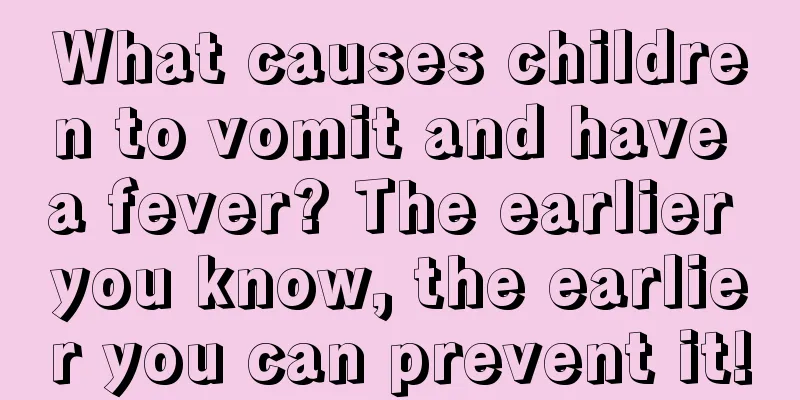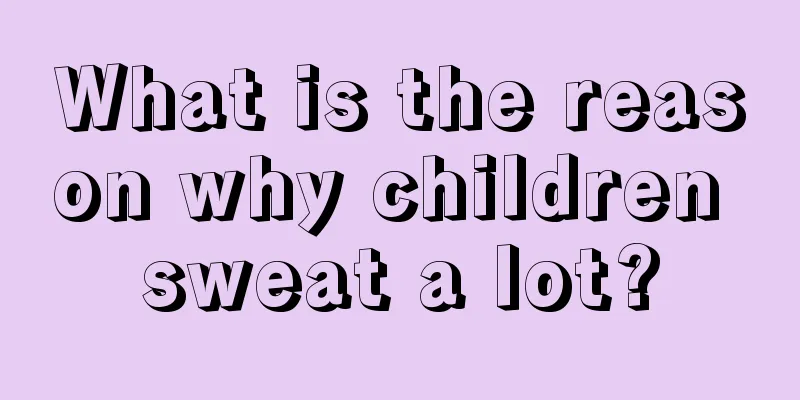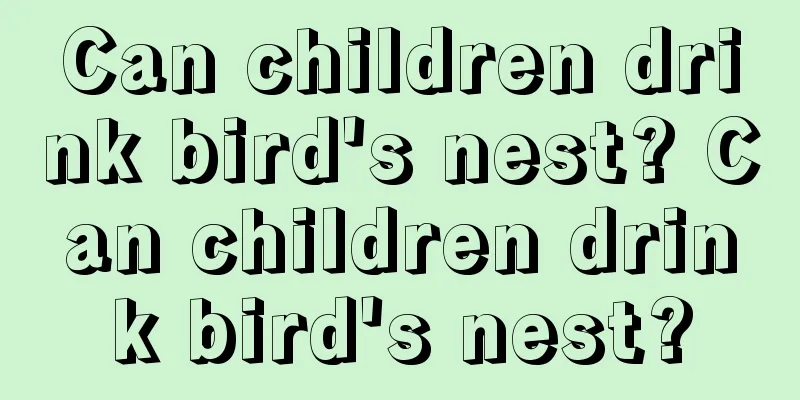What causes children to vomit and have a fever? The earlier you know, the earlier you can prevent it!

|
If a child has symptoms of vomiting and fever, it will inevitably affect the child's health. Every parent wants their child to be healthy, so the best way to deal with the disease is prevention. In order to find prevention methods, let's first learn the causes of the disease. 1. Gastrointestinal cold Gastrointestinal cold in children is mainly caused by a virus called Kesaki, accompanied by mixed bacterial infection. Gastrointestinal cold is also known as vomiting upper respiratory tract infection in medicine. Main symptoms: bloating, abdominal pain, vomiting, diarrhea, multiple bowel movements a day, feeling weak. In severe cases, it can lead to dehydration, electrolyte imbalance, and damage to the immune system. 2. Gastrointestinal infectious diseases: Children with acute gastroenteritis, bacillary dysentery, and acute food poisoning may also experience fever and vomiting. Main symptoms: Gastrointestinal infectious diseases generally do not cause a very high fever, and the fever does not last long. Vomiting is non-projectile, and the vomitus is food and other stomach contents. 3. Acute abdomen Some acute abdomens in children, such as acute intestinal obstruction, intussusception, acute appendicitis, acute pancreatitis, etc., generally present with fever and vomiting clinically. Main symptoms: In addition to fever and vomiting, abdominal pain is more prominent in acute abdomen. Generally, the diagnosis can be confirmed through physical examination and relevant physical and chemical tests. 4. Meningitis and Japanese encephalitis. Epidemic meningitis and Japanese encephalitis in children both have fever as the early symptom when they become ill. Main symptoms: Mostly persistent high fever, with body temperature usually between 39℃ and 40℃. In addition to the high fever, the child will vomit frequently, mostly in the form of projectile vomiting, and will soon develop convulsions, coma, and impaired consciousness. 5. Others 1. Throat irritation After respiratory tract infection, throat infection, redness, swelling and secretions, and cough occur. If vomiting occurs after coughing, it should be considered to be caused by irritation of the throat. 2. Fever causes intestinal dysfunction. After fever, gastrointestinal motility slows down, the effect of digestive enzymes decreases, the baby suffers from indigestion, abdominal bloating, and vomiting easily. |
<<: What should I do if my child has a cold and vomits? These drugs work well
>>: Why does a child vomit when coughing? This is the reason!
Recommend
Causes of knee pain in children
We know that knees are of great significance to t...
Can a newborn be held upright?
After a newborn is born, many aspects of its body...
My baby hasn't pooped for a few days and keeps farting
We all know that mothers are very careful when fe...
White spots on newborn's head
I believe that most parents will find that their ...
The severity of hemangioma on the baby's head and the treatment of hemangioma
Every child is an angel to his or her parents and...
How to deal with the small red spots on children’s body?
If you find small red spots all over your child&#...
Why do children often bite their fingers?
If a baby is just born, it is normal for him to b...
What is the standard weight for newborns?
Some women have a big belly during pregnancy, but...
What is the most nutritious food for babies?
What is the most nutritious food for babies is a ...
What to do if your child has dry hair
Dry hair is a very troublesome problem, especiall...
How to grow taller quickly at the age of 17
We all know that boys and girls grow fastest duri...
How to cure indigestion in children?
In today's society, more and more children ar...
Symptoms of stomach ache in baby
A baby's own immunity and resistance cannot b...
What medicines are used to treat burns in children?
If a child is burned, parents must pay attention ...
16-month-old baby early education
Everyone knows that baby's education is more ...









